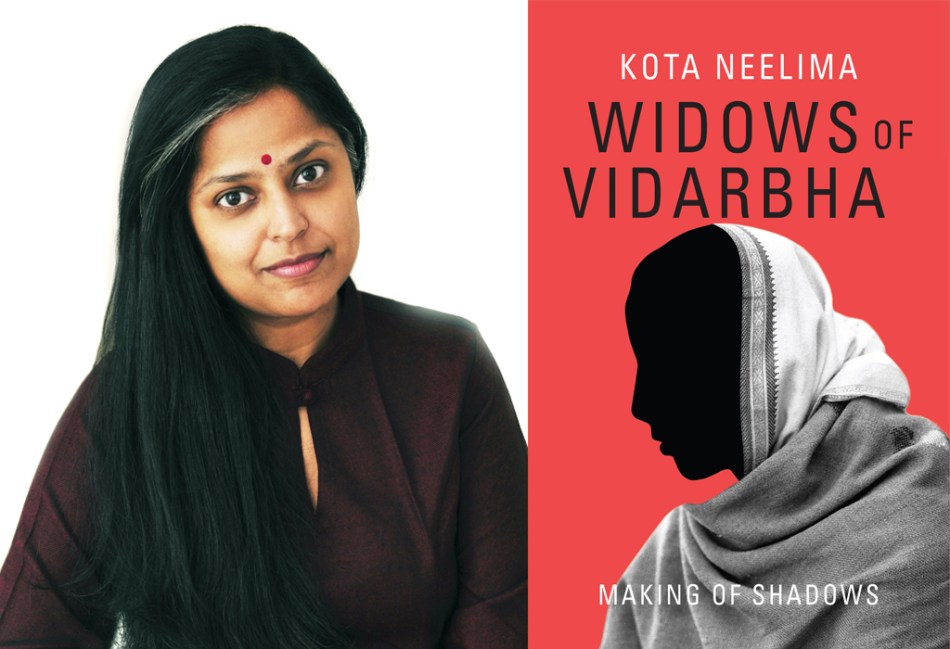Where is the woman in the story? After nearly two decades as a political journalist, a PhD scholar with a thesis on democratic reforms, and an author of three critically acclaimed books on politics and farmer suicides, Kota Neelima came to the uncomfortable realization that she was eclipsing herself from the narrative.
And so, while her third book Shoes of the Dead (Rupa Publications, 2013) was being hailed as one of the most successful books of political fiction and is now being made into a film, Neelima decided to write her next one, The Honest Season (Penguin Random House, 2016), from the point of view of a female journalist. And it was harder than she expected.
“It is traumatic to write from the perspective of a working woman in India – the whole story just can’t be put into language. Can any woman say in all honesty that she has never been discriminated against? How can one not be angry in these times?” she asks, thoughtfully.
The protagonist in the book was abandoned as a baby and grows up with a special ability to read people’s thoughts. A gripping page-turner about wheeler-dealers in the corridors of power, the plot explores the grit of urban life, political chicanery and modern-day relationships. But the reader cannot brush off an uneasy sense of uncertainty, fear and a chillingly silent fury beneath it all.
The female gaze is dark and deep.
 A woman of many talents, Neelima did her Master’s in international relations from Jawaharlal Nehru University in Delhi and was senior research fellow at Johns Hopkins University, Washington DC. She also studied at Arpana Caur’s Academy of Fine Arts and Literature, and, besides her writing and academic work, paints trees – lots and lots of trees, of varying shapes and hues – which for her is a process of sensory and spiritual discovery.
A woman of many talents, Neelima did her Master’s in international relations from Jawaharlal Nehru University in Delhi and was senior research fellow at Johns Hopkins University, Washington DC. She also studied at Arpana Caur’s Academy of Fine Arts and Literature, and, besides her writing and academic work, paints trees – lots and lots of trees, of varying shapes and hues – which for her is a process of sensory and spiritual discovery.
As former political editor for The Sunday Guardian newspaper and principal correspondent for The Indian Express covering politics, she had been immersed in issues concerning democracy, farmer distress, and the rural poor in India for years. But it is only of late that her writing has taken a new direction.
 “I don’t buy the argument that feminism doesn’t work. Women are not only treated unequally but are blatantly exploited,” she says, articulating her thoughts at high speed, going from one to the next. “A lot of people trivialize the issue of equal rights, but we need a framework even to talk about it, and everything that has been earned – the right to vote, civil and criminal laws – has been won through feminism. The next step is to apply those arguments to family – do you allow your daughter-in-law to go out and work? But those in power do not care about women’s rights. The best we have done for ‘Nirbhaya’ Jyoti is forget her. So how does one write happy women’s stories?”
“I don’t buy the argument that feminism doesn’t work. Women are not only treated unequally but are blatantly exploited,” she says, articulating her thoughts at high speed, going from one to the next. “A lot of people trivialize the issue of equal rights, but we need a framework even to talk about it, and everything that has been earned – the right to vote, civil and criminal laws – has been won through feminism. The next step is to apply those arguments to family – do you allow your daughter-in-law to go out and work? But those in power do not care about women’s rights. The best we have done for ‘Nirbhaya’ Jyoti is forget her. So how does one write happy women’s stories?”
Releasing this month, Neelima’s latest work Widows of Vidarbha: Making of Shadows (Oxford University Press, 2018) talks about the widows left behind by farmer suicides. “Once a farmer is married, he gets an extra hand to do farm work free of cost. Women in rural areas do more than 50 per cent of the farm labour, but they are neither paid nor counted as cultivators. They are invisible to the state, the community, and even to their families. This denies them their constitutional rights. It’s only when the farmer dies does one realize the sorry state of the wife in his shadow,” says Neelima, who followed several widows in two districts of Vidarbha for three years, and was confronted by seamless stories of absolute injustice.
 Yet, Neelima found reasons to hope even in their dismal circumstances. “Not having a man around means these women are stepping out of home for the first time, filling up bank forms, making a living, developing a sense of self-respect. Their children are growing up with stronger female role models,” she reports with a sense of awe, seated in the study of her Delhi home where she lives with her husband.
Yet, Neelima found reasons to hope even in their dismal circumstances. “Not having a man around means these women are stepping out of home for the first time, filling up bank forms, making a living, developing a sense of self-respect. Their children are growing up with stronger female role models,” she reports with a sense of awe, seated in the study of her Delhi home where she lives with her husband.
The widows in Neelima’s book have learnt to protest in quiet ways, and avoid confrontation so as not to disturb the patriarchy. Theirs is a silent, subversive fight to get their due. “Their hope is not like ours. Theirs is life-giving; it’s a force. They have no option but to survive and succeed.” The story isn’t over yet.
First published in the February 2018 issue of eShe magazine.


0 comments on “It’s Near Impossible to Write the Woman’s Whole Truth, Says Kota Neelima”